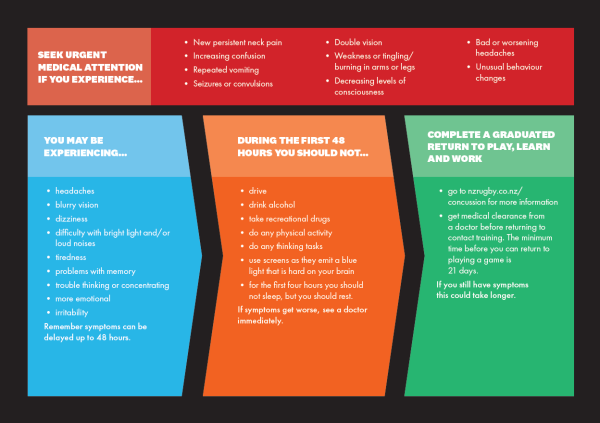Talking to parents about concussion
Effective communication with parents is crucial when it comes to managing concussions in youth rugby. Learn how to have open, informative conversations that prioritise player safety and well-being.
BEFORE A CONCUSSION

Communication is Key
As a coach, it's essential to establish clear communication with parents at the start of the rugby season. One of the most important topics to discuss is concussion management. Take the time to explain the role you expect parents to play, your expectations as a coach, and the available support resources. By fostering open communication, you create a foundation of trust and collaboration that will benefit the team throughout the season.
Everyone Plays a Part
Recognising and managing concussions is a team effort, and parents play a crucial role. Everyone, including coaches, players, and parents, has a responsibility to identify concussion symptoms, remove the affected player from the game or training, and support them through the graduated return to play and learning process. Encourage parents to be proactive and informed, as their involvement is vital to ensuring their child's safety and well-being.
AFTER A CONCUSSION

Signs and symptoms of concussion
If a player sustains a concussion, it's crucial to educate their parents or caregivers on the signs and symptoms to watch for. Provide them with a comprehensive list of concussion symptoms, which may include headaches, dizziness, confusion, memory issues, and changes in mood or behaviour.
Symptoms can appear immediately after the incident or may develop over time, so ongoing monitoring is essential.
Understanding red flags
In addition to common concussion symptoms, parents should be aware of the red flags that may indicate a more severe injury. These red flags can appear up to 48 hours after the concussion occurs and require immediate medical attention. Some red flags include:
- Severe or worsening headache
- Seizures or convulsions
- Repeated vomiting
- Slurred speech
- Weakness or numbness in the arms or legs
- Unusual behaviour changes
- Loss of consciousness
If any of these red flags are present, the player should be taken to an emergency department immediately.

